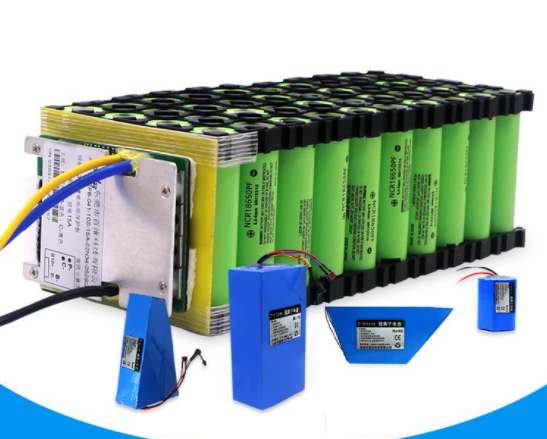INTRODUCTION
Lipo batteries are a type of rechargeable battery that offer high energy density and discharge rates. Lipo batteries are used in a variety of electronic devices, including RC hobbies, drones, cell phones, and electric vehicles.
There are a few things to consider when choosing a lipo battery, such as capacity (mAh), voltage (V), and discharge rate (C). Capacity is the amount of energy that the battery can store, measured in milliamp-hours (mAh). The higher the mAh rating, the longer the battery will last.
Voltage is the amount of power that the battery can provide and is measured in volts (V). A higher voltage will result in more power, but may also shorten the lifespan of the battery.
Discharge rate is the rate at which the battery can be discharged, measured in amps (A). A higher discharge rate will result in more power, but may also shorten the lifespan of the battery.
Benefits of LiPo batteries

Lipo batteries offer a variety of benefits over other types of batteries, such as higher energy density, higher discharge rates, and lighter weight.
Higher energy density means that lipo batteries can store more energy in a given space than other types of batteries. This is due to the fact that lipo batteries use lithium-ion chemistry, which has a higher energy density than other chemistries.
Higher discharge rates allow lipo batteries to provide more power when needed. This is beneficial for applications that require high power output, such as RC hobbies and drones.
The lighter weight is another advantage of lipo batteries. This is due to the fact that lithium is a very light element. Lipo batteries also have a higher power-to-weight ratio than other types of batteries, meaning they can provide more power per unit of weight.
Applications:
LiPo batteries are used in a wide variety of electronic devices, including cell phones, laptops, RC airplanes and cars, electric vehicles, drones, and power tools.
LiPo batteries can be customized to any size or shape depending on the demand of the customer.
Disadvantages of LiPo batteries
Lipo batteries also have a few disadvantages, such as a shorter lifespan and higher cost.
A shorter lifespan is due to the fact that lipo batteries are subject to the “memory effect”, which means that they will gradually lose capacity over time if they are not fully discharged before recharging. This can be prevented by using a lipo battery balancer, which will equalize the cells in the battery pack and prevent capacity loss.
The higher cost is another disadvantage of lipo batteries. This is due to the fact that lithium-polymer chemistry is more expensive than other chemistries. However, the higher cost is offset by the fact that lipo batteries last longer and offer more power than other types of batteries.
LiPo batteries are sensitive to abuse. If they are charged too quickly, overcharged, or discharged too deeply, they can be damaged or even destroyed. This can lead to fires and explosions, so it is essential to follow the manufacturer's instructions when using and charging LiPo batteries.:
Safety Concerns for Lipo Batteries
Lipo batteries can be safe if used correctly, but they can be dangerous if not used properly. They must be charged with a lipo-specific charger, and must never be charged above 4.2V per cell. Lipo batteries must also be discharged properly to avoid damaging the cells.
Lithium Polymer batteries can catch fire if they are damaged or not used properly. This is due to the fact that lithium is a highly reactive element. If a lipo battery is punctured, it can catch fire and even explode. That is why it is important to use lipo-safe charging bags and storage containers.
Lipo batteries should never be left unattended while charging, and should always be charged in a fire-proof location.
It is also important to note that lipo batteries are not toys. They should only be used by adults who understand the risks and know how to use them safely.
Features of Lipo Batteries
Some of the features of LiPo batteries are:
- Lipo batteries have a higher energy density than other types of batteries, which means they can store more energy in a given space.
- They have a higher discharge rate, which allows them to provide more power when needed.
- Lipo batteries are lighter in weight than other types of batteries, which makes them more portable.
- They have a higher power-to-weight ratio, which means they can provide more power per unit of weight.
Balancing charge in LiPo batteries

It is important to balance the charge of LiPo batteries to prevent capacity loss and extend their lifespan. This can be done with a lipo battery balancer, which will equalize the cells in the battery pack and prevent capacity loss.
Storing LiPo batteries
LiPo batteries must be stored in a cool, dry place. They should never be stored near heat sources, such as radiators or fireplaces. LiPo batteries should also never be stored near metal objects, such as keys or coins.
Disposing of LiPo batteries
LiPo batteries must be disposed of properly. They should never be thrown in the trash, as this can cause fires. Instead, they should be recycled or returned to the manufacturer for safe disposal.
When should I dispose of my LiPo battery?
You should dispose of your LiPo battery when it can no longer hold a charge, or if it is damaged. Lipo batteries can catch fire if they are damaged, so it is important to dispose of them properly.
Replacing LiPo batteries
You should replace your LiPo battery when it can no longer hold a charge, or if it is damaged. Lipo batteries can catch fire if they are damaged, so it is important to replace them with new, undamaged batteries.
What are some tips for caring for my LiPo batteries?
Here are some tips for caring for your LiPo batteries:
- Store them in a cool, dry place at room temperature.
- Store them at 50% to 60% of their full charge.
- Check the storage instructions from the manufacturer before storing.
- Balance charge them every 30 to 40 cycles.
- Follow the manufacturer's instructions when using and charging.
Conclusion
LiPo batteries are a type of battery that can be used in many different devices. They have a high energy density and can provide more power than other types of batteries. However, they must be used and stored correctly to avoid fires and explosions. When disposing of LiPo batteries, it is important to recycle or return them to the manufacturer

